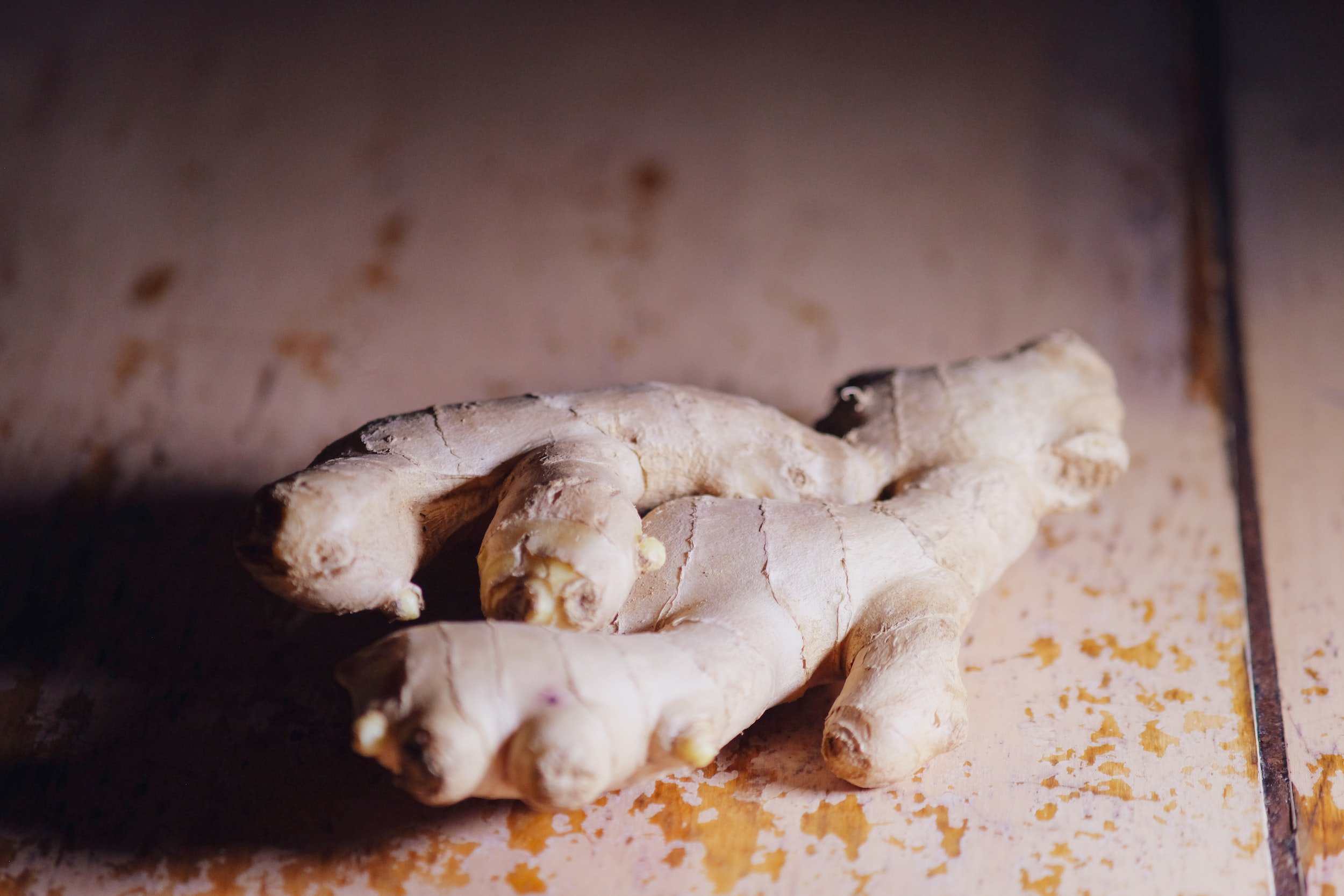Ginger oil profile
Ginger
Zingiber officinale
Latin Name: Zingiber officinale
Chemistry: zingiberene, a-curcumene, b sesquiphellandrene
Aroma: Fresh, Spicy, Warm, Earthy
Good for: Pain, Digestive issues, Circulation, Exhaustion
Energetics: Warming, Comforting, Stabilising, Reinvigorating
Traditional use: Ginger is a perennial plant native to tropical regions of Asia, and it is widely cultivated for its underground stem, or rhizome, which is used as a spice. The rhizomes have a distinctive, pungent aroma and a warm, spicy taste used in a wide variety of dishes and beverages worldwide. Ginger has been used for centuries for its medicinal properties and is believed to have various health benefits, including relieving nausea, reducing inflammation, and easing digestive issues. It has been used widely in China since ancient times, including giving it to sailors to avoid scurvy long before vitamin C deficiency was known as its reason. It was traded and spread by the Arabs and found its way to Europe and the Americas, where it became highly prized and valued for medicinal and culinary uses.
Ginger essential oil has a warm, spicy, and pungent aroma and is used in aromatherapy, perfumery, and natural remedies.
Some of the possible benefits of ginger essential oil include the following:
Reducing inflammation and pain: Ginger essential oil may have anti-inflammatory properties and may help relieve muscle and joint pain. (2)
Easing nausea and vomiting: Ginger essential oil may help to reduce nausea and vomiting caused by motion sickness, morning sickness, or chemotherapy.(3)
Boosting the immune system: Ginger essential oil may have immune-boosting properties and may help to protect against infections and illnesses. (1)
Improving digestion: Ginger essential oil may help to improve digestion and reduce bloating and gas. (3)
Reducing stress and anxiety: Ginger essential oil may have a calming effect and help reduce stress and anxiety.
Ginger Co2 Extract
Ginger CO2 extract is a plant extract made from the ginger plant (Zingiber officinale) using carbon dioxide as the solvent. CO2 extraction is a process that uses pressurized carbon dioxide to extract the desired compounds from the plant material. The resulting extract is a concentrated form of the plant's natural compounds, including gingerols and shagaols, which are believed to have various health benefits.
Ginger CO2 extract is also thought to have antioxidant and immune-boosting properties and may help to protect against infections and illnesses.
REFERENCE
1- Denyer CV, Jackson P, Loakes DM, Ellis MR, Young DA. (1994) Isolation of antirhinoviral sesquiterpenes from ginger (Zingiber officinale). Journal of Natural Products, 57(5):658-662.
2- Khalilzadeh E, Vafaei saiah G, Hasannejad H, et al. (2015) Antinociceptive effects, acute toxicity and chemical composition of Vitex agnus-castus essential oil. Avicenna J Phytomed. 5(3):218-30.
3- Riyazi A, Hensel A, Bauer K, Geissler N, Schaaf S, Verspohl EJ. (2007) The effect of the volatile oil from ginger rhizomes (Zingiber officinale), its fractions and isolated compounds on the 5-HT3 receptor complex and the serotoninergic system of the rat ileum. Planta Med, Apr, 73(4):355-62.



